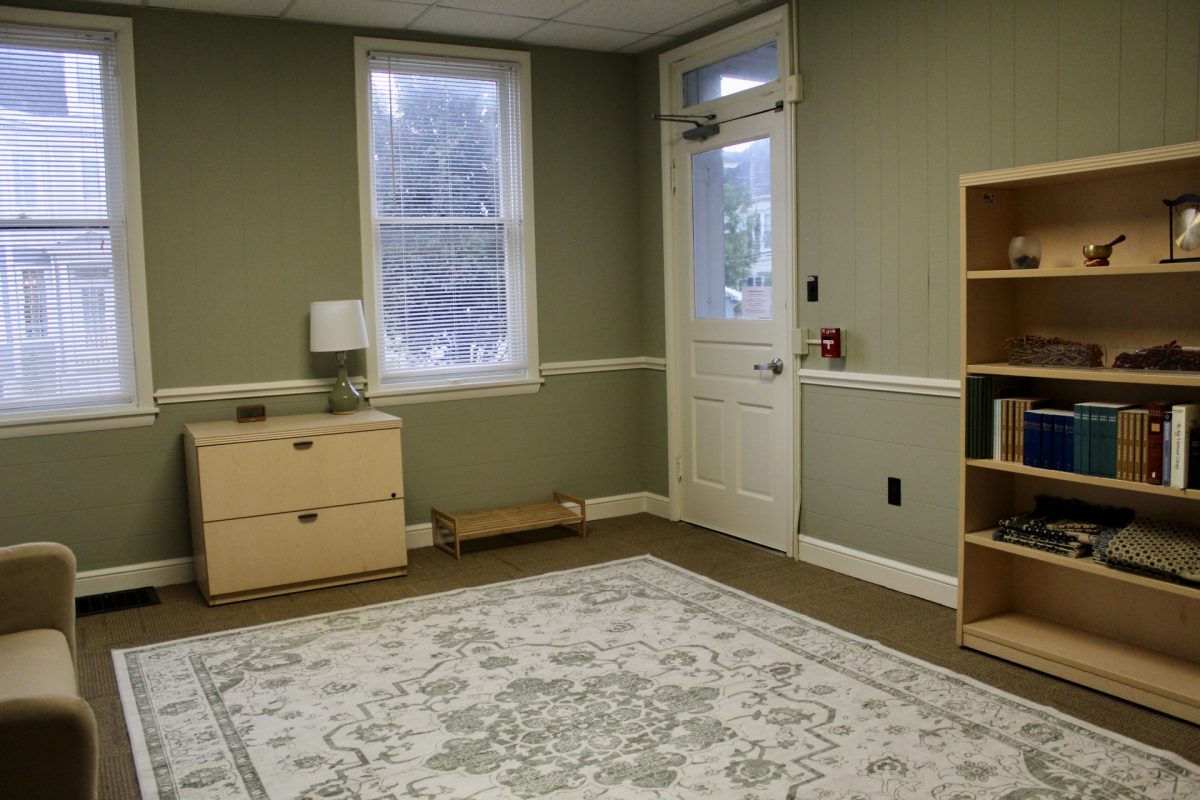The Clarke Forum lecture “A New Divide – The possibility for dialogue” explored ways that debate can peacefully happen on college campuses. The lecturer, Manu Meel is the CEO of the advocacy group Bridge USA, which holds conferences for members of Gen Z in colleges and high schools in 22 states. Meel is also the host of “The Hopeful Majority” podcast, and his works have been published in newspapers such as the New York Times.
Meel began his lecture with an anecdote of being at UC Berkeley and encountering a February protest against a lecture organized by Students Support Israel at Berkeley, the largest student demonstration at the school since the Vietnam War. In a discussion session held by students after the event, Meel discovered that students of varied political ideologies and interest in politics found that they were not so different as people, but that fear prevented students from getting to know each other. He also found that the fundamental difference in America today is between those who are open minded versus those who are not.
Meel stressed that the United States is about to have its 250th anniversary when the nation is the most divided it has been in a century. He spoke about how America is becoming the most diverse democracy in the world, and how that fact presents so much opportunity for a promising future. He also spoke about the growing danger to this democratic project from an inability to care about a good future for Gen Z.
On a road trip across the nation, Meel found that a group of conservative voters in rural Louisiana had strongly negative feelings towards liberals and couldn’t remember the last time they had a meaningful discussion with someone of a significantly different political viewpoint.
Meel’s Bridge USA held a conference last year to test out the results of respected communication amongst Gen Z. Out of a selection of 28% liberal, 44% independent and 28% conservative attendees, the respect for people who were considered different grew while the independent student interest in politics also increased. Meel recounted a debate held at Gettysburg College last year on the topic “Is the USA the greatest country on Earth?” garnered diametrically opposed opinions.
A white woman claimed that American participation in World War II proved the notion in the affirmative, only for a Black man to point out that his relatives at the time could not drink from the same water fountain as their neighbors. Eventually, the advocate for the affirmative said she understood why someone could hold a different opinion. Meel’s point was that convincing someone to change opinions in a debate shouldn’t be the point of dialogue. Instead, participants should discuss why they hold opposing views.
Meel believes progress can be made if the people who are indifferent towards the political system make their voices heard. Only a tenth of the electorate vote in primaries and a similar fraction of X users generate 85% of political content. As a result, the people most interested in outrage to validate their preconceived viewpoints end up dominating media coverage.
Students in attendance primarily asked Meel what to do if someone didn’t wish to have a genuine dialogue. The best advice given is to set expectations that are focused on understanding rather than convincing. Additionally, try to separate opinions on issues from any labels, since political affiliations can be tied to a person’s identity, and people shouldn’t feel attacked.
Cross-pollination of ideas can also happen, as people’s opinions on an issue can be separate from what a label such as ‘liberal’ might suggest. In the event someone tries to fundamentally deny a person’s identity, Meel didn’t provide advice to confront but hope for reciprocal respect.
Meel believes that healthy dialogue is the key to save American democracy, and it must start with the youngest generation who are going to inherent this nation. To learn more about Manu Meel and the work he has done with Bridge USA, their website can be found at https://www.bridgeusa.org/.




